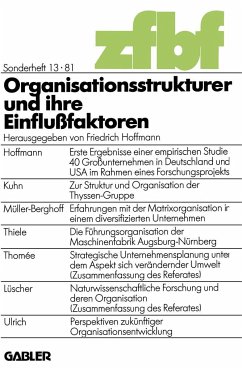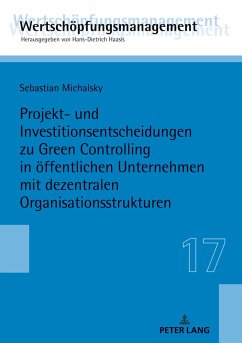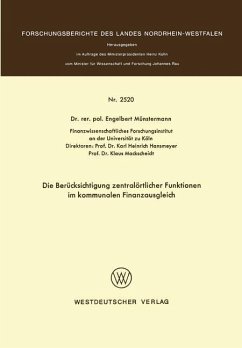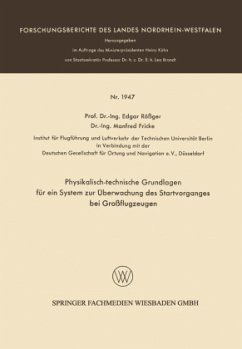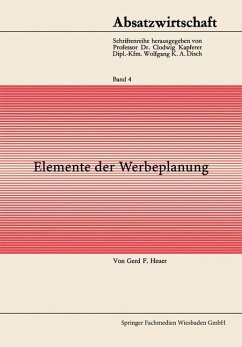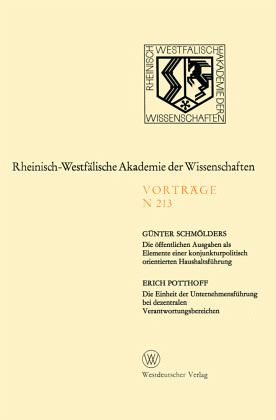
Die öffentlichen Ausgaben als Elemente einer konjunkturpolitisch orientierten Haushaltsführung. Die Einheit der Unternehmensführung bei dezentralen Verantwortungsbereichen
197. Sitzung am 7. April 1971 in Düsseldorf

PAYBACK Punkte
0 °P sammeln!
In the scope of a financial policy based on economic requirements, the task of stabilizing the economic process by regulation of the total demand has to an ever larger extent been incumbent on public expenditure. While extensive studies exist which thoroughly analyze the use of public expendit ures as stabilizing elements and their effect on the economic situation, the political and institutional as well as the technical and economical bases of the variations of expenditure have been neglected up to now. In order to be able to correctly evaluate individual government expenditures in their qual...
In the scope of a financial policy based on economic requirements, the task of stabilizing the economic process by regulation of the total demand has to an ever larger extent been incumbent on public expenditure. While extensive studies exist which thoroughly analyze the use of public expendit ures as stabilizing elements and their effect on the economic situation, the political and institutional as well as the technical and economical bases of the variations of expenditure have been neglected up to now. In order to be able to correctly evaluate individual government expenditures in their quality as instruments with which to influence the economic trend, it is therefore necessary to determine in which measure which part of public expenditure will be flexible, or, to put it more clearly, it is necessary to define the margin which in each case will be at the disposal of the legislative and executive organs for a systematic variation of expenditure on a short-term basis according toeconomic necessities. This means that the concept of flexibility comprises the aspect of quantity as well as the - economically decisiv- aspect of time of a possible variation of expenditure. Each of these aspects, and consequently the overall flexibility, is determined in two phases which succeed each other; first in the phase of preparing the budget plan and then in the phase of carrying it out.





